 Petzlover
Petzlover Mountain View Cur is originated from United States but Welsh Corgi is originated from United Kingdom. Mountain View Cur may grow 36 cm / 15 inches higher than Welsh Corgi. Mountain View Cur may weigh 14 kg / 31 pounds more than Welsh Corgi. Both Mountain View Cur and Welsh Corgi has same life span. Both Mountain View Cur and Welsh Corgi has same litter size. Mountain View Cur requires Low Maintenance. But Welsh Corgi requires High Maintenance
Mountain View Cur is originated from United States but Welsh Corgi is originated from United Kingdom. Mountain View Cur may grow 36 cm / 15 inches higher than Welsh Corgi. Mountain View Cur may weigh 14 kg / 31 pounds more than Welsh Corgi. Both Mountain View Cur and Welsh Corgi has same life span. Both Mountain View Cur and Welsh Corgi has same litter size. Mountain View Cur requires Low Maintenance. But Welsh Corgi requires High Maintenance
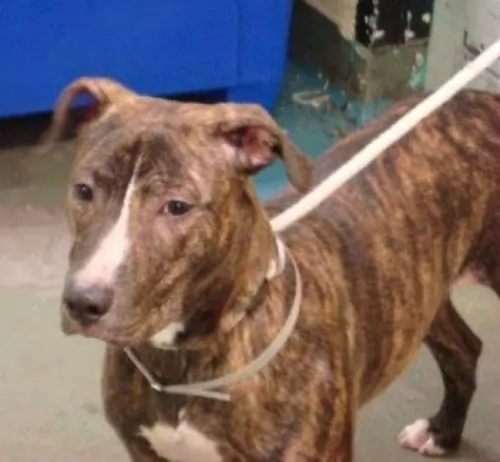 The Mountain View Cur is an American bred dog that resulted from years of deliberate breeding and careful culling of the litters to improve the Mountain Cur into a hunting dog with a better temperament and a stronger hunting instinct. Because of these generations of culling and refining the Mountain View Cur is so uniform within the breed that it is considered a thoroughbred as well as a purebred. Developed at the end of the 1980’s by Michael and Marie Bloodgood. The foundation for their breeding program was the Mountain Cur.
The Mountain View Cur is an American bred dog that resulted from years of deliberate breeding and careful culling of the litters to improve the Mountain Cur into a hunting dog with a better temperament and a stronger hunting instinct. Because of these generations of culling and refining the Mountain View Cur is so uniform within the breed that it is considered a thoroughbred as well as a purebred. Developed at the end of the 1980’s by Michael and Marie Bloodgood. The foundation for their breeding program was the Mountain Cur.
The new Mountain View Cur were meant to be stronger in every way than the original Mountain Cur. They could track, hunt and tree both large and small prey. It’s work ethic is unsurpassed regardless of the weather or terrain. Highly intelligent and motivated the Mount View Cur can use its incredible prey drive to follow the game at any cost. Yet it can be trusted off lease because while hunting the Mountain View Cur will instinctively go to the hunter and check in occasionally.
This breed is ultimate hunter, known for treeing squirrels and racoons. His strongest drive is to please the human he is with. He has a gentle, loving temperament. Because of their desire to please, they are great companion animals as well as hunters. In addition to coons and squirrels, the Mountain View Cur could hunt possum, coyote, pheasants, turkey, hare, grouse, hare and rabbits. They are also willing to fight with lions, bobcats, bears, and wild boars. Surprisingly they can herd as well.
They are a healthy breed and very hearty with a long lifespan. They are extremely popular in the mountains and hills of Appalachia, but they are rare and almost unknown outside the United States. Puppies are very expensive and there is a waiting list that could be very long. The original Mountain View Curs descended from just two Mountain Curs – one male, one female. As the program went on Mountain View Curs were bred to Mountain Views Curs and then other Mountain Curs were added in.
Originally the breed was registered as a part of the Kemmer Stock Breeders Association Registry. Eventually however the breeders of View Curs came to believe that they had an entirely new breed and the American Squirrel and Night Hunters Association was the choice to register the breed in 1995. One year later the Mountain View Cur Registry was founded.
 The Pembroke Welsh Corgi and the Cardigan Welsh Corgi were once considered to be two types of the same breed. Today they are recognized as very different breeds, but cousins of sorts.. They are alike in many ways and very different in others. The general information in terms of height and weight above applies to the more popular and better known Pembroke Welsh Corgi, developed as a herding dog from the spitz line in Pembroke shire, Wales. The Pembroke is famous for being the breed favored since childhood by Queen Elizabeth, the current queen of England. It’s believed that the Pembroke came to the country around the 10th century with Flemish weavers. The Cardigan is thought to have come with the Norse people and be a relative of the Sedish Vallhund.
The Pembroke Welsh Corgi and the Cardigan Welsh Corgi were once considered to be two types of the same breed. Today they are recognized as very different breeds, but cousins of sorts.. They are alike in many ways and very different in others. The general information in terms of height and weight above applies to the more popular and better known Pembroke Welsh Corgi, developed as a herding dog from the spitz line in Pembroke shire, Wales. The Pembroke is famous for being the breed favored since childhood by Queen Elizabeth, the current queen of England. It’s believed that the Pembroke came to the country around the 10th century with Flemish weavers. The Cardigan is thought to have come with the Norse people and be a relative of the Sedish Vallhund.
The Cardigan Welsh Corgi, also a herding dog has their ancestry in ancient Celtic dogs. They are older than the Pembroke and hail from Cardiganshire, Wales.
Both breeds are friendly, smart and independent. Both dogs herd cattle and sheep. About the end of the 19th century, farmers in Cardiganshire began to raising sheep rather than cattle. The corgis were herding dogs for cattle. “Heelers” who avoid the cattle kicking them by nipping at the cattle’s heel. Pembrokeshore and Cardiganshire are counties in South West Wales that adjoin each other.
Then the move was made from cattle to sheep in Cardiganshire they bred their corgis with the Welsh Sheepdog where the merle color is said to come from, and the Pembroke Welsh Corgi. This caused the similarities between the two dwarf breeds. At the same time the distance grew between the two breeds and they grew into very distinct and different looking dogs. There are also some differences in their personalities.
The first corgi to appear at Crufts came in 1927 and in 1928 a Pembroke won a championship at Cardiff for the first ever corgi win. It was not until 1934 that the kennel club recognized them as separate breeds rather than a Pembroke shire type and a Cardiganshire type. From this point on the two are separate breeds with tremendous similarities. A Pem won the Reserve Best in Show at Crufts in 1955.
The first corgi came to the United States in 1933 by a breeder of Old English Sheepdogs. In 1934 the American Kennel Club (AKC) recognized Corgis as one breed with 2 types. The Pembroke has always been the more popular of the two.
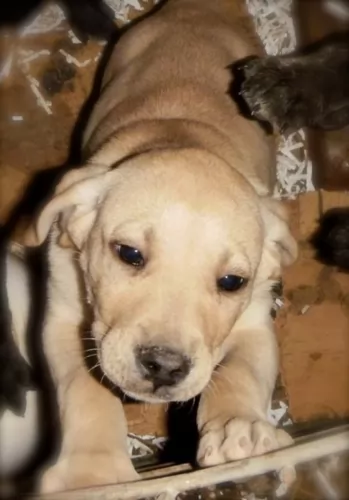 The Mountain View Cur is a rugged, healthy breed that has very little in common with its ancestor the Mountain Cur at least in its looks. The Mountain View Cur is born with no dewclaws while the Mountain Cur has them. The Mountain View Cur is a stronger and more muscular breed as well. They have a flat domed head with ears that are high set and short. Her eyes are dark and prominent, its neck and back strong and muscular, while its chest is deep. Half the pups are born with a bobtail and half have their tales docked. About 10% are black, brindle or brindle and black. They all have white on the feet, chest and muzzle.
The Mountain View Cur is a rugged, healthy breed that has very little in common with its ancestor the Mountain Cur at least in its looks. The Mountain View Cur is born with no dewclaws while the Mountain Cur has them. The Mountain View Cur is a stronger and more muscular breed as well. They have a flat domed head with ears that are high set and short. Her eyes are dark and prominent, its neck and back strong and muscular, while its chest is deep. Half the pups are born with a bobtail and half have their tales docked. About 10% are black, brindle or brindle and black. They all have white on the feet, chest and muzzle.
 They used to differentiate between the Cardigan and the Pembroke by saying the Cardigan was the one with the bigger ears and the Pembroke had no tail. In many parts of the world where tail docking has been banned, most Pembrokes now have tails. Only those born without don’t have them. Both dogs are long and low to the ground with big chests and short legs. This is because they are dwarfs. They are not little dogs.
They used to differentiate between the Cardigan and the Pembroke by saying the Cardigan was the one with the bigger ears and the Pembroke had no tail. In many parts of the world where tail docking has been banned, most Pembrokes now have tails. Only those born without don’t have them. Both dogs are long and low to the ground with big chests and short legs. This is because they are dwarfs. They are not little dogs.
The Cardigan Welsh Corgi is heavier boned than the Pembroke, has large rounded ears and a flowing, fox like tail. The Cardigan comes in a variety of colors but never predominately white. He is double coated with a dense, harsh outer and a soft, short and thick undercoat.
Pembroke is smaller and longer than the Cardigan with pointed ears. They are intelligent, sturdy and strong with tremendous stamina. The tail is docked in the United States or the pups are bred not to have a tail. This was originally so that the cattle could not step on their tails and injure the dogs. The double coat on the Pembroke is short and weather resistant inner coat with a longer and rougher outercoat. He has the same deep dropped chest as the Cardigan. Both corgis shed voraciously.
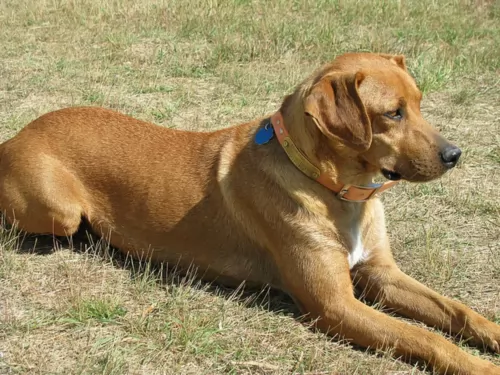 Very child friendly, playful and gentle
Very child friendly, playful and gentle
Scent and well-disciplined self-control
This breed is designed to work and to hunt. They are happiest when they have a job or are in the woods with you. They have excess energy and need space. They will not do well as a 24 hour inside dogs. They need space to run and hunt.
Highly intelligent, excellent ability to learn whatever you want to teach them.
 1Children friendliness For the most part they are good but can be grumpy and bossy. They are bossy personalities
1Children friendliness For the most part they are good but can be grumpy and bossy. They are bossy personalities
3.Adaptability – Very. Can live anywhere but they do need to run and they bark a lot.
4.Learning ability – incredibly smart but stubborn. Respond well to training that is reward based.
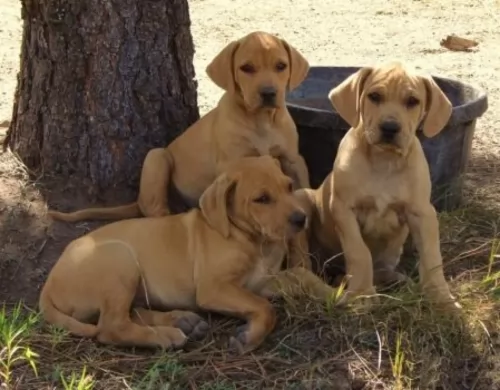 The Mountain View Cur is a very healthy breed without a lot of genetic issues due to the purity and isolation of the breed. No genetic deformities or illness. They are susceptible to a few health concerns.
The Mountain View Cur is a very healthy breed without a lot of genetic issues due to the purity and isolation of the breed. No genetic deformities or illness. They are susceptible to a few health concerns.
Bloat – like most larger dogs, the Mountain View Cur is susceptible to bloat. This occurs when the dog’s internal organs, stomach and intestines become inverted and twisted. This can occur when the dog eats a large meal immediately before or after strenuous exercise.
 • Degenerative Myelopathy – a muscular neurological disease very similar to Lou Gehrig’s Disease or ALS. It is always fatal.
• Degenerative Myelopathy – a muscular neurological disease very similar to Lou Gehrig’s Disease or ALS. It is always fatal.
• Some have cardiac issues while others may have hip dysplasia or Von Willebrand’s disease.
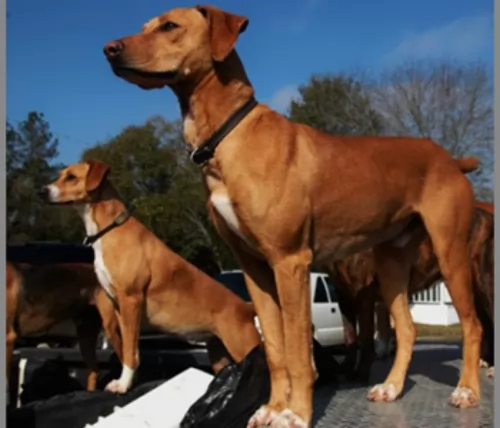 The Mountain View Cur puppy after 12 weeks of age will need to eat 3 meals per day until they are 6 months old. From 6 months to one year they need 2 meals a day. They need high quality dry dog food made especially for puppies that will become large dogs.
The Mountain View Cur puppy after 12 weeks of age will need to eat 3 meals per day until they are 6 months old. From 6 months to one year they need 2 meals a day. They need high quality dry dog food made especially for puppies that will become large dogs.
An adult Mountain View Cur can eat only once a day and be healthy. They need a high quality dry food for large dogs.
Extremely healthy breed with stamina and speed.
The Mountain View Cur is a hunter and an extremely active one at that. They also have herding tendencies. Though they are not hyper, they need a lot of exercise. They also need a job. They want nothing more than to please their person, but they need a job to stimulate both his body and mind. He needs daily walks and a fenced yard to run in. They are good at agility, search and rescue, herding, field trials, police work, and hunting.
 1Feeding the puppy prone to overweight, the pem needs ½ to 1 cup of small breed high quality food in 3-4 meals per day. The Cardigan needs ¾ to 1 ¼ cups of high quality small breed food in 3-4 meals per day.
1Feeding the puppy prone to overweight, the pem needs ½ to 1 cup of small breed high quality food in 3-4 meals per day. The Cardigan needs ¾ to 1 ¼ cups of high quality small breed food in 3-4 meals per day.
2.Feeding the adult – Don’t overfeed them. The Pem need 1 cup per day of high quality small breed food in 2 meals per day. The Cardigan needs 1-1 ½ cups per day in one to two meals.
They are fast, athletic dogs. Agility, CAT, Barnhunt. Herding trials, flyball and they just love backyard ball fetching. Confirmation and obedience, along with rally.